 The Euros, or to use their full name, the UEFA European Championship, is an international men’s football tournament held every four years and contested by the 55 members of UEFA. The Union of European Football Associations sanctions and organises this continental tournament and it takes place in even numbered years between the FIFA (Federation Internationale de Football Association) World Cup.
The Euros, or to use their full name, the UEFA European Championship, is an international men’s football tournament held every four years and contested by the 55 members of UEFA. The Union of European Football Associations sanctions and organises this continental tournament and it takes place in even numbered years between the FIFA (Federation Internationale de Football Association) World Cup.
That’s the very basic information but we’ve got lots more detail on this great event which effectively crowns the best international football team in Europe. We are first and foremost a betting site, so we have of course compiled a guide to betting on the Euros, but we have also got information on the history of the event, its structure, how qualification works and some fun facts and stats. Fun is, well, kind of fun, so let’s start there!
Betting on the Euros: Strategy & Tips

The Euros is one of the major betting events on the sporting calendar, with punters and bookies going wild on the football betting feast offered up by the tournament. Given that football is the number one betting sport in the world and many of the planet’s biggest regulated markets are within Europe, this should come as no surprise.
Qualifying itself sees lots of money wagered but things really hot up every four years for the finals. Each market is covered in great depth by all the best betting sites, with literally hundreds of markets available on every game, plus a massive range of specials on teams, players and indeed the entire tournament.
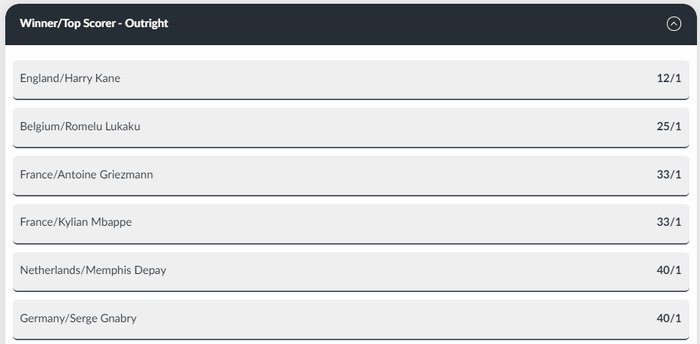
As with all of our various tournament and event betting guides, much of the strategic foundation for your bets can be found within our more generic football betting strategy guide. As we will probably never tire of saying, the key to football betting is finding the value. Usually the way to try and do that is to study as much information, news and data as you possibly can but given the bookies are doing that too, it isn’t easy.
Considering past stats, trends and results is a reasonable start when it comes to picking out your bets. However, you simply have to remember that more often than not, the bookies’ odds reflective such widely and publically available information. However, if you can spot something the bookies or the markets have missed, or perhaps see an emerging trend early, there is just perhaps a chance you will be able to grab some great value before the bookies and your fellow punters get up to speed.
All that said, here are one or two Euros-specific factors we think are worth your consideration as you try to develop your own betting strategies.
Back Germany, France or Spain
This might not qualify as the most sophisticated betting strategy around but backing one – or more – of the continental big guns may be a smart move. Since the Euros moved to eight or more teams in 1980, these three nations have each triumphed on two occasions. We discount the pre-1980 tournaments because with just four nations they are not really anything like the modern tournament.
Since the Championship expanded to eight, then 16 and then 24 teams, the big hitters have won six out of 10 editions, an impressive strike rate. With a further four final appearances between them that really is impressive stuff.
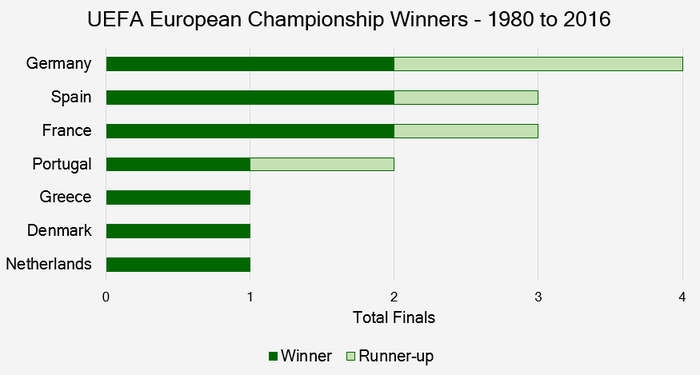
That said, lumping on the favourite hasn’t always been a shrewd move and we have certainly had some huge upsets at the Euros. In 1992 Denmark only stepped in as late replacements for Yugoslavia but defied the odds to go all the way and eventually take Euros glory. They had just a week to prepare for the tournament and began at odds of 20/1 – huge odds with just eight teams involved.
In 2004 Greece caused an even bigger surprise when they won the tournament in Portugal at a whopping 150/1. Last but not least, Portugal themselves, despite being able to field Cristiano Ronaldo, were 20/1 shots in 2016. So, whilst the big guns are the obvious choice for the outright winner market, they are far from the only option.
Rule Changes
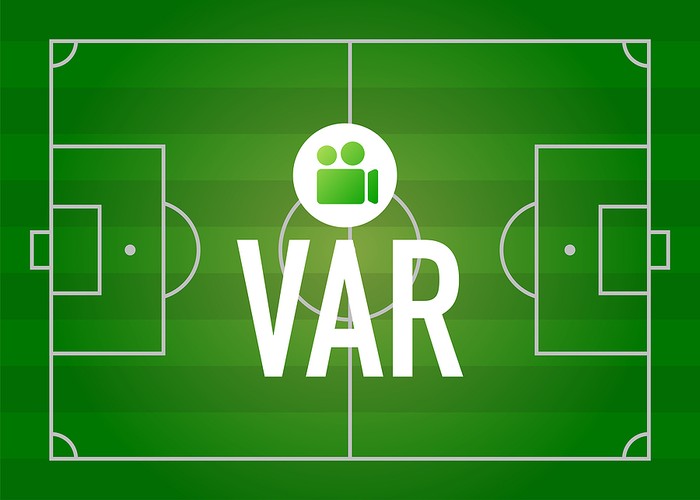
Slightly different rules, or interpretations of them, or the use of new technology, can have a big impact on major tournaments such as the Euros. At the 2018 World Cup we saw the introduction of VAR, and a crackdown on penalty area grappling led to a huge increase in the number of penalties and set piece goals. This created lots of opportunities to cash in for those that foresaw this pre-tournament, or even those who spotted the new trends early on in Russia.
Major tournaments regularly introduce tweaks or utilise different technology for the first time and this can have an impact on various factors including the number of goals, penalties and bookings.
UEFA Technical Report

For each Euros, as well as each edition of the Champions League and other UEFA tournaments, European football’s governing body produces a technical report. This highlights changing trends in terms of goals, styles, approach and any developments in the game that were witnessed at the competition in question. FIFA also produces a report on the World Cup and this data, which includes information such as goalscoring analysis and team profiles, can often be used to uncover developing trends and changes which may just give you the edge.
How do you Qualify for the Euros?
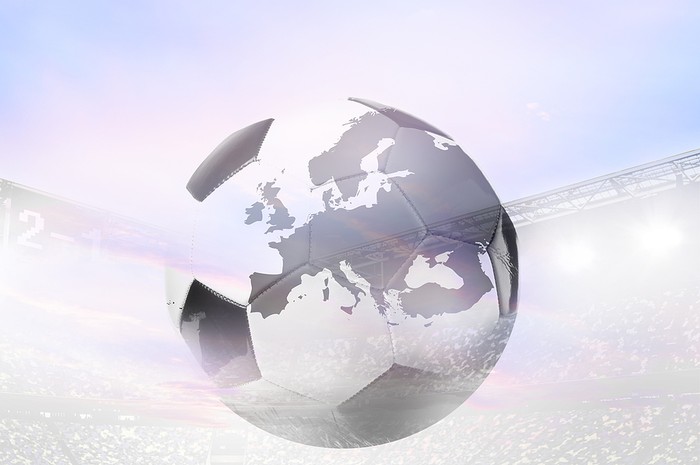
As with all tournaments and competitions that have been around for a long time, the format of both qualification and the finals has changed many times. The 2020 (2021) tournament sees one of the biggest changes to the qualification process we have ever seen, with a ground breaking new structure.
Here we will look at the 2020 tournament, with a little info on past European Championships below. In terms of the qualification process, we have covered many of the latest changes in our feature on the Nations League, so we won’t repeat that here in quite the same detail.
However, in short, the European Championship for 2020 has two qualifying routes, with the bulk of places on offer through a standard process. A total of 20 teams will book their spots at Euro 2020 through the main qualifying process, with a further four places on offer through the Nations League.
The 55 UEFA members will be whittled down to 24 teams and the draw for the main group phase of proceeding s was made in Dublin on 2nd December 2018. This created 10 groups from A to J, with groups A to E featuring five teams and Groups F to J containing six nations. The top two nations in each group will qualify for the finals and seedings based on the inaugural Nations League group phase were used to ensure that the top four Nations League teams were in a group of just five.
The final four places are decided by a play-off process. Normally such play-offs have involved teams that were “best losers” from the group phase but the 2020 Euros is using the Nations League instead. As said, you can read all about how this will work in our Nations League feature.
In summary though, each of the four leagues of the Nations League will have one place on offer for the Euros, with each tier’s top four teams facing play-offs to determine who will win it. Sides already qualified won’t be eligible and the play-offs originally due to take place at the end of March 2020, featuring two single-game semis and a final, though were actually competed in November of 2020.
The playing of the Euro 2020 Finals was moved back one year to start in June 2021 as opposed to June 2020 as originally planned.
Structure of the Tournament

Credit: delbaro / bigstock.com
As said, it is not just the qualification procedure that has seen a major overhaul for 2020. The finals themselves will be the first ever not to have a fixed, single (or shared) host and instead will be a pan-European affair spread over 12 venues in 12 different countries and taking place from the 11th June to the 11th July 2021, switched from 12th June to 12th July 2020 to allow the domestic 2019/20 season to be completed.
Then-UEFA President, Michel Platini, said this format would be a one-off and is designed as a romantic celebration for the 60th anniversary of the competition. Indeed, Germany will be the sole host for 2024 but 12 nations will see games in 2020, with the host cities and countries listed below.
- England – Wembley Stadium, London
- Germany – Allianz Arena, Munich
- Italy – Stadio Olimpico, Rome
- Azerbaijan – Olympic Stadium, Baku
- Russia – Krestovsky Stadium, Saint Petersburg
- Hungary – Puskás Aréna, Budapest
- Romania – Arena Națională, Bucharest
- Netherlands – Johan Cruyff Arena, Amsterdam
- Spain – San Mamés, Bilbao
- Scotland – Hampden Park, Glasgow
- Ireland – Aviva Stadium, Dublin
- Denmark – Parken Stadium, Copenhagen
Wembley will play host to both semi finals and the final, as well as a last 16 tie and three group games. Munich, Baku, Saint Petersburg and Rome will host the quarters and three group games, with the remaining venues hosting a round of 16 games as well as a trio of group clashes.
The draw for the 24-team event was held in December 2019, with seedings used, and will see six groups of four teams created. Within each group, from A to F, nations will play each other once, with the top two from each group plus four best-placed third teams making the last 16.
The final groups and seedings for the 2020/21 Euros are shown in the table below.
| Group | Seed 1 | Seed 2 | Seed 3 | Seed 4 |
|---|---|---|---|---|
| A | Italy | Switzerland | Turkey | Wales |
| B | Belgium | Russia | Denmark | Finland |
| C | Ukraine | Netherlands | Austria | North Macedonia |
| D | England | Croatia | Czech Republic | Scotland |
| E | Spain | Poland | Sweden | Slovakia |
| F | Germany | France | Portugal | Hungary |
From the last 16 onwards the tournament will follow a standard knockout format, with those topping their group having the advantage of playing sides who finished second or third.
Prize Money
There is considerable prize money available to the federations of the teams at Euro 2020. Just for making the finals, nations will earn a tidy €9.25m, whilst each win in the group phase will add €1.5m to a country’s fund. Progressing further into the competition increases the money nations will earn, with the winner taking an additional €10m.
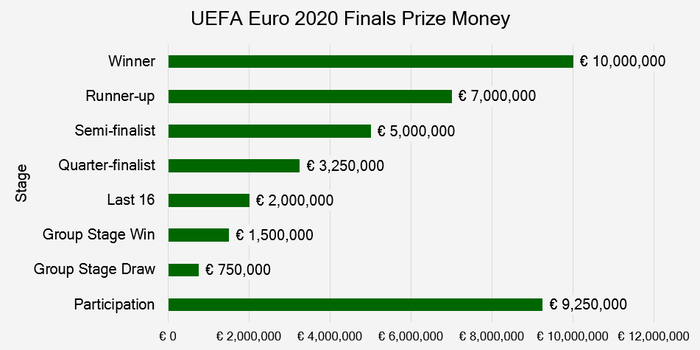
If the overall winner of Euro 2020 was to win every game they played they would take home a massive windfall of €34m.
History of the UEFA European Championships
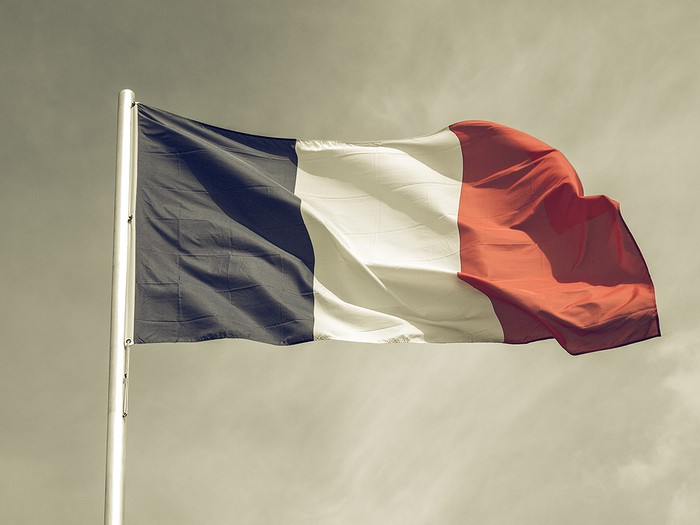
The UEFA European Nations’ Cup, as it was known until 1968, was first held in 1960, in France and saw just four teams take part. In the 1950s and 1960s there were a number of initiatives, events and bodies established as the world and in particular Europe sought to avoid a repeat of the two World Wars.
The Euros was in many ways part of that, although in actual fact the idea of a European international competition had first been mentioned back in 1927. Henri Delaunay, a French football administrator, fought hard to bring the new competition about but sadly he died before the first staging of the event he envisioned.
Talks between the French Football Federation and other governing bodies moved very slowly and it wasn’t until 1958 that the concept was agreed. Delaunay died in November 1955 but the trophy for the winners of the Euros is named in his honour and was first awarded to the Soviet Union in 1960.
Early Tournaments
As said, just four nations participated in 1960, with hosts France, victors the USSR and Czechoslovakia and Yugoslavia completing the line-up. Only 17 nations took part (from qualifying onwards) but four years later many more countries saw the worth in the competition.
A total of 29 nations entered qualifying for Spain 1964, with West Germany the biggest to decide against taking part. Again just four teams took part in the finals, with hosts Spain ultimately denying the Soviet Union another triumph.
The Finals Expanded
Over the years the tournament steadily expanded, with various tweaks and changes along the way. It wasn’t until 1980 that the finals expanded to include eight teams though, that moving to 16 for England’s Euro 96, when football almost came home but was yet again thwarted by penalties and Germans.
As various countries across the continent have split up, qualifying has become a bigger and bigger affair. There are now 55 UEFA members, Kosovo joining the football fiesta in 2016 and the 2016 Euros saw a further expansion to 24 teams. That total is agreed at least as far as 2024 but who knows, further growth could happen before too long.
List of Winners
Ahead of the 2020 tournament there have been a total of 15 previous competitions and 10 different nations have won (counting West Germany and Germany as one nation). Two no longer extant nations, Soviet Union and Czechoslovakia, have won the Euros more times than England, whilst Yugoslavia, a third, have made more appearances in the final than the Three Lions!
| Year | Winner | Score | Runner-Up | Host |
|---|---|---|---|---|
| 1960 | Soviet Union | 2-1 (a.e.t.) | Yugoslavia | France |
| 1964 | Spain | 2-1 | Soviet Union | Spain |
| 1968 | Italy | 2-0 (replay, 1-1 draw a.e.t.) | Yugoslavia | Italy |
| 1972 | West Germany | 3-0 | Soviet Union | Belgium |
| 1976 | Czechoslovakia | 2-2 (a.e.t.) 5-3 pens | West Germany | Yugoslavia |
| 1980 | West Germany | 2-1 | Belgium | Italy |
| 1984 | France | 2-0 | Spain | France |
| 1988 | Netherlands | 2-0 | Soviet Union | West Germany |
| 1992 | Denmark | 2-0 | Germany | Sweden |
| 1996 | Germany | 2-1 (a.e.t. golden goal) | Czech Republic | England |
| 2000 | France | 2-1 (a.e.t. golden goal) | Italy | Belgium/Netherlands |
| 2004 | Greece | 1-0 | Portugal | Portugal |
| 2008 | Spain | 1-0 | Germany | Austria/Switzerland |
| 2012 | Spain | 4-0 | Italy | Poland/Ukraine |
| 2016 | Portugal | 1-0 (a.e.t.) | France | France |
Greece Cause Major Upset
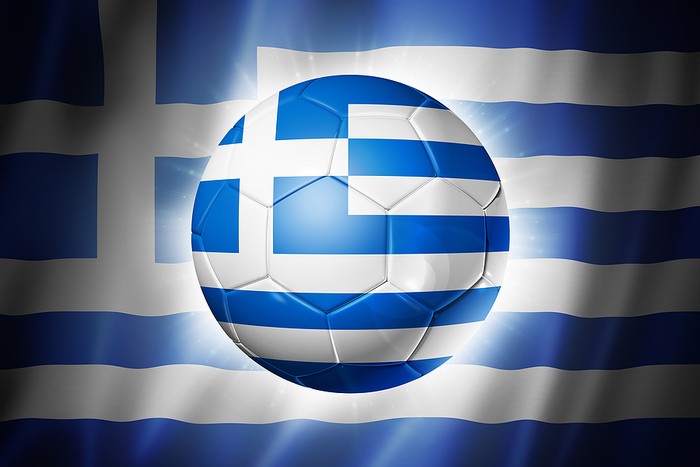
As we can see from the list of winners, a variety of nations has won the European Championship and, as touched on in our betting strategy section, there have been a number of big upsets in terms of the outright winner.
In terms of the odds, none can beat Greece in 2004 and whilst they didn’t quite ‘do a Leicester’, odds of 150/1 were certainly hugely rewarding for anyone who saw that coming. Portugal were the hosts that year and it was also the tournament where Wayne Rooney probably produced his best football in an England shirt, despite being just 18 years old.
Rooney set English pulses racing and his four goals in four games saw him named in UEFA’s Team of the Tournament. However, he limped off in England’s quarter final loss to Portugal and it was Cristiano Ronaldo’s team that Greece ultimately beat in the final.
The Greeks only scraped through the group phase, finishing behind Portugal in Group A and level on points with Spain. They made the last eight thanks to scoring more goals than the Spaniards, which is somewhat ironic given their triumph is considered to be one of the most dour in major tournament history.
Greece lost their two opening games in qualification 2-0 and seemed doomed but fought back to make the tournament under the guidance of Otto Rehhagel. Only Latvia were less fancied than Greece but their German boss had them very well organised, they had luck when it mattered and they worked incredibly hard as a unit.
In the quarters they knocked out the defending champions France, winning 1-0, before they needed a silver goal against the Czechs to win in the semis, that game also ending 1-0. In the final, in a largely forgettable match with the hosts in Lisbon, Rehhagel’s men won 1-0 yet again.
| Stage | Date | Opponent | Score |
|---|---|---|---|
| Group Game 1 | 12/6/2004 | Portugal | 2-1 win |
| Group Game 2 | 16/6/2004 | Spain | 1-1 draw |
| Group Game 3 | 20/6/2004 | Russia | 2-1 loss |
| Quarter-Final | 25/6/2004 | France | 1-0 win |
| Semi-Final | 1/7/2004 | Czech Republic | 1-0 win (a.e.t.) |
| Final | 4/7/2004 | Portugal | 1-0 win |
Theodoros Zagorakis was named player of the tournament but it is perhaps telling that his goalkeeper and two Greek centre backs made the team of the tournament. Greece were not easy on the eye but the fact they didn’t concede a single goal in three knockout games has to be worthy of credit.
Denmark Don’t Qualify but Win the Tournament
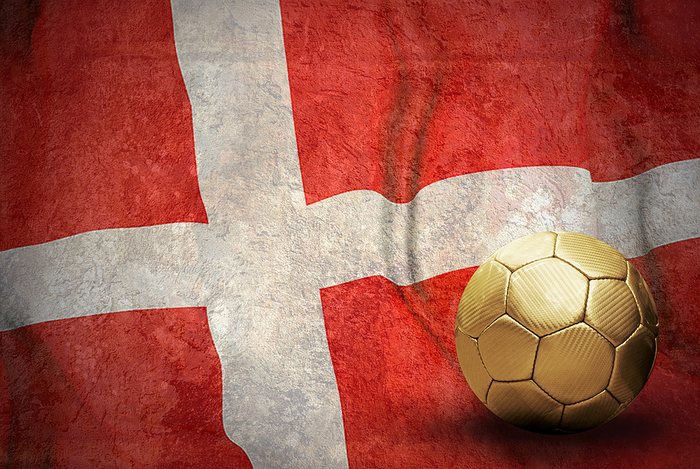
At shorter odds Denmark’s Euros success in 1992 was perhaps even more surprising. The Danes were pipped to qualification by Yugoslavia in Group 4 as they paid the price for only managing two draws against Northern Ireland. The players duly booked their summer holidays and made plans that probably didn’t involve watching the action in Sweden, let alone travelling there.
However, off the pitch events would change things dramatically. Yugoslavia was in the process of breaking up and civil war and subsequent UN sanctions meant they were disqualified. Just 10 days prior to Euro ’92, Denmark were drafted in and the players had virtually no time to prepare or train.
Theirs was another triumph based on defence, with manager Richard Møller Nielsen using his team’s size and power, plus the brilliance of Peter Schmeichel in goal, to great effect. As with Greece, we saw that organisation and team unity can be powerful forces and it probably also helped that the Danes were familiar with conditions in Sweden. A sprinkling or two of magic up front from Brian Laudrup completed the team.
From start to finish though it was Schmeichel who marshalled his team and they conceded just two goals to finish behind the hosts but ahead of France and England in Group 1. Next they faced the defending champions, Netherlands, winning on penalties after a 2-2 draw.
Few gave the Danes a hope in the final against a very strong German side but in the end it was a relatively easy win for the underdogs. They beat the more fancied, better prepared and undoubtedly technically superior side 2-0 to complete what really was a fairy tale for Denmark.
| Stage | Date | Opponent | Score |
|---|---|---|---|
| Group Game 1 | 11/6/1992 | England | 0-0 draw |
| Group Game 2 | 14/6/1992 | Sweden | 1-0 loss |
| Group Game 3 | 17/6/1992 | France | 2-1 win |
| Semi-Final | 22/6/1992 | Netherlands | 2-2 draw (a.e.t.), 5-4 (pens) |
| Final | 26/6/1992 | Germany | 2-0 |
Trivia
For a large number of people, seven is considered a lucky number. We have no research to prove this but we reckon it is true so here are our seven top pieces of Euros trivia to entertain, amuse and impress (at least those people who are easily entertained, amused and impressed).
- Platini and Ronaldo – both these football legends have managed nine goals in Euros finals. However, Michel Platini scored all of his in 1984 at a rate of 1.8 per game, whilst CR7 has taken four Championships and 12 years to score his at a rate of 0.43 goals per match!
- Irish Goals Galore (in Qualifying!) – Ireland’s Robbie Keane is the record scorer in Euros qualifying with 23. Northern Ireland’s David Healy jointly holds (with Robert Lewandowski) the record for the most goals registered in a single qualifying competition, managing 13 in 2008 qualification.
- Lucky 13 – our lucky number is an obvious pick, seven. However, Germany might think 13 is theirs, as they walloped San Marino 13-0 in the biggest ever win in a European Championship game.
- Unlucky 7 – perhaps amazingly, in the entire 1968 tournament finals there were only seven goals scored. Certainly unlucky for the neutrals, although in fairness there were only four games.
- Unlucky Toss – sticking with 1968, and with bad luck, following a 0-0 draw with the Soviet Union in Naples, Italy were eliminated from their home Euros on the toss of a coin. Mama Mia!
- Your Support is F***ing S**t – the 1964 finals game between Hungary and Denmark was watched by just 3,869 people, the lowest attendance for a European Championship finals game.
- When Two Tribes go to War – the 11th June 2016 was a tough day for the Xhaka family as brothers Granit (of Arsenal “fame”) and Taulant Xhaka became the first brothers to play against each other. Loyal (who are we to say less talented?!) Taulant turned out for his ancestral Albania whilst turncoat (to some!) Granit played for Switzerland, the country of his birth.
